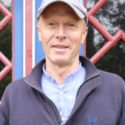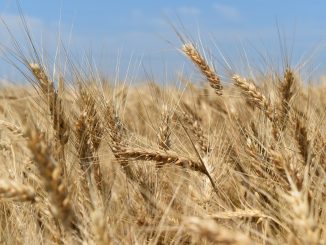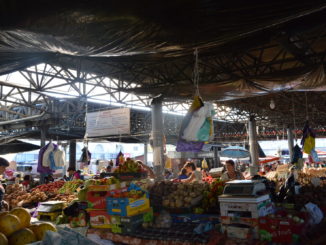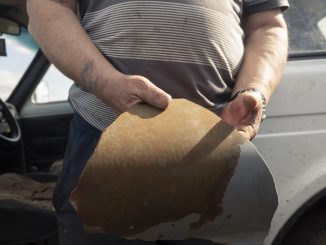“The EU does not really make fair play with us”, says Andriy, on our way from Lviv Airport to the international rural lifeshop, organised by Forum Synergies and its Ukranian members in the West Carpathians.
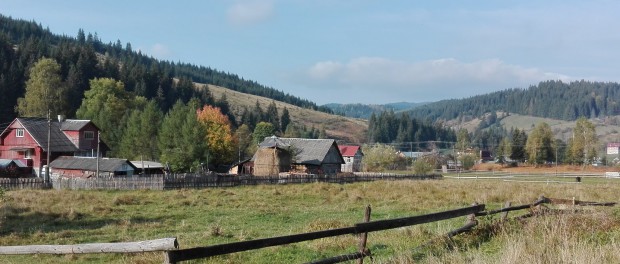
“As EU citizen, you freely enter our country, – but we Ukrainians need visa. The association agreement EU-Ukraine mainly allows raw materials into the EU but not high value commodities. Our sunflower seeds can enter the EU market, but very little sunflower oil. Our berries may be traded but not fruit yoghurt; and the quota the EU allowed us for honey was complete after two months. What is more: when Ukraine stopped the export of unprocessed wood to the EU in order to avoid unsustainable cutting of wood and to help our wood industries to gain added value, the EU accused us to brake trade rules. Fair trade is something else,” Andriy added.
He is working with a company that promotes the production of berries in Ukraine; but he also is engaged in a non-profit rural development initiative called Karpatske Kolo. Forum Synergies and Karpatske Kolo have invited people engaged in civic initiatives from across Europe to visit a rural region in Ukraine and to share good practices and ideas for cooperation across borders and cultures. Participants come from EU member states like France, Estonia, Latvia, Poland, Belgium, Spain, the UK, Hungary and Slovakia, but also from pre-accession and neighbour countries like Serbia, Moldova and Georgia.
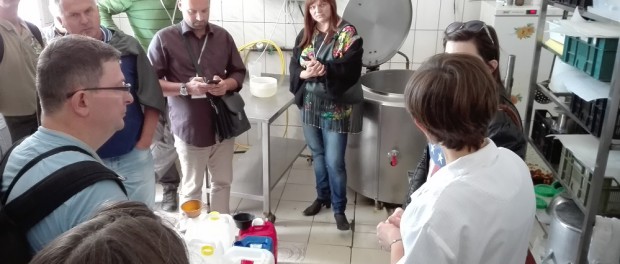
A lifeshop is a process of visits and reflexions about local rural life in the various regions of Europe, looking for the best ways to make economic activities and living conditions more sustainable and attractive for people, so that they can remain or come to live in rural regions. At the visit of a goat farm near Dolyna which includes cheese production, participants share their experiences with animal husbandry, processing of milk and cheese, hygiene rules and marketing strategies. “You would not be able to do this in Slovakia,” says Milos, “because the EU would not allow this. But your cheese is good and we should reflect how to change these rules also in the EU so that small farmers can make their living also with small quantities and good quality”. Gwil from the UK adds: “perhaps should not feed your goats so much on concentrate feed from the Netherlands, because intensive feed often causes animals animal health problems. A veterinary costs more than letting them graze”.
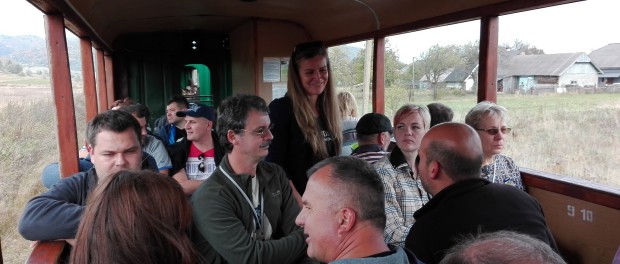
Moving through rural Ukraine, meeting people and their projects, allows us to rediscover slowness. Roads allow sometimes not moving at more than 15 km/h. The bus driver artistically steers us around deep holes and rifts. But this way we grasp more of the landscape and the fields: the beauty of very well kept traditional wooden farm houses with a goat, a cow, chicken and a great variety of flowers; – or the young Ukrainian lady in a modern urban dress guiding the family’s cow to grazing on common land; in the village the nicely renovated school and church buildings; or the small enterprises to work timber from the nearby forest.
Western people may see it like the beauty and calmness of the past. But there are also many new wealthy houses and hotels being built, expensive cars and children communicating with newest mobile phones. Both realities reflect each other. However, the strongest contrast we notice during our stay in Ukraine is between war and peace. We are in the most Western part, but the conflict in the East is omnipresent. The country has painted itself in the national colours of light blue and yellow. At bus stations and public squares, you cannot overlook the calls for joining the Ukrainian Army and military services. “Every family is touched by the war in the East in one or the other way,” says Andriy. “My brother in law is now serving with surgeries of wounded soldiers and civilians. We have regular drafting and recruiting in different parts of the country. The war is very present for us, and it is far from being over.”
“We feel very much touched by what you are going through,” says Marta form Poland. And you can rely on us for help to support your people. I will organise crowd funding and concrete support whenever you tell me so. Similar expressions of solidarity come from the Baltic and the Georgian participants. Andriy explains these feelings and engagements also from the past: “These feelings still come from ties during the great deportations ordered by Stalin, where our people suffered together in Siberia. The feeling of insecurity has very much grown since the Crimea crisis. But the only way out of that is to stand together. I am happy that in spite of the war, many of our people stay in Ukraine and invest in their homes and in new projects. Without that, we would be in a much worse situation. But we also know that many companies from the USA and EU draw their feet when they notice the high level of corruption which is still a problem in our country”.
One encouraging project is the nature Museum and the railway heritage trail in Ivano-Frankivsk. It includes a very educative hand-on experience of the Carpathian nature beauty and the revival of a train trail through the mountains, including a tourist centre with a wide range of artisan products from the region. Our trip on the train, packed with mainly Ukrainians from the region include the sounds of a folklore band traveling with us, and the “assault” of the train by a “Ukrainian partisan” looking for KGB agents.
“People like to travel through their history like this, says Dragan from Serbia.” And I believe I have today seen the soul of the local people”.
At the nearby town of Dolyna we meet the Mayor and vice-mayor. The city council is run by a very young and creative administrative staff. Citizens can reach public services and support through a transparent IT system. The Estonian delegation is happy to see the cooperation with Estonian partner towns.
While being one of the oil-rich regions of Ukraine with important resources and industries, the city has invested in renewable energy systems, insulation of houses, support of farmer’s markets and eco-tourism, public transport and a wide range of art events. It works in partnership with European mayors, engaged for sustainable energy and development Covenant of Mayors.
Asked about the vision for his region, including the rural areas around Dolyna, Mayor Volodymyr Harazd says:” We have no alternative to cooperating in sustainable projects, taking good care of our resources. The oil will be out at some point, so we better watch out for alternatives in time. The state owned forest is being exploited quite intensively, as most local communities have no other source of income. But if we do not establish a sustainable way of forest management we will have no future generations to stay. We must find a fair balance between nature and us and between cities and the countryside. We believe that we move well that way.”
Andriy leaves us at the train station. “I hope that you can get the message across that we count on the EU. We have to do our bit to get our economy right. But also the EU should take us as partners, not just as a provider of cheap resources for their industries”.
Hannes Lorenzen Co-President Forum Synergies. With special thanks to Rostyslav Cos and his team and to Marina for making this lifeshop possible.


